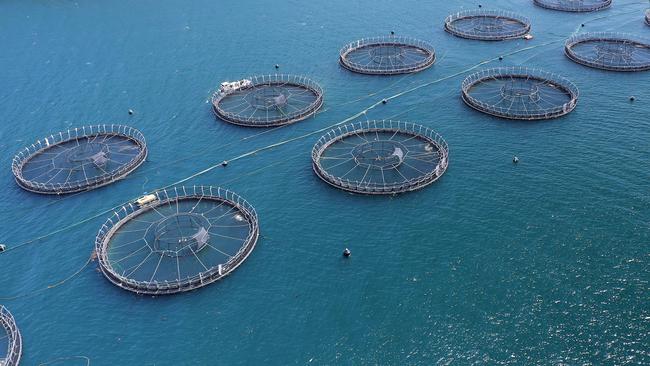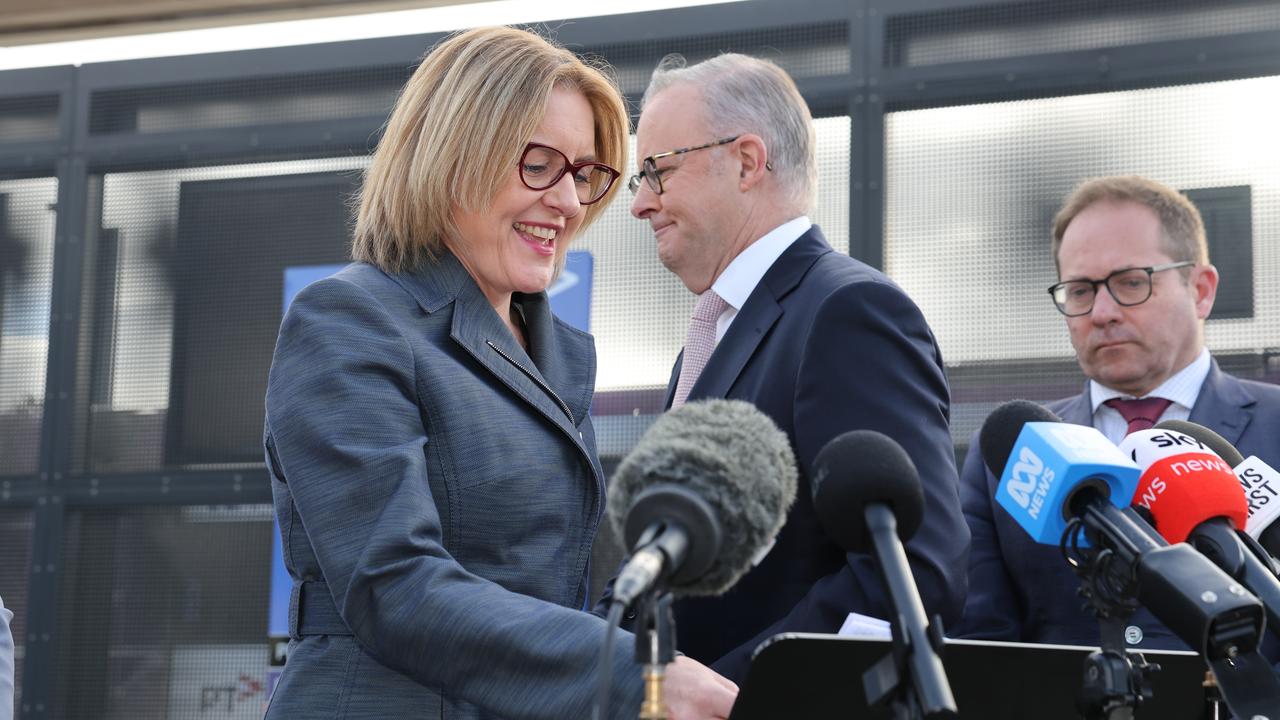‘Open minded’ or ‘just like whaling’: conservationists divide on Bass Strait fish farm trial
Fish farming could be expanded into Commonwealth waters nationally, depending on a controversial new Tasmanian salmon growing trial in Bass Strait, dividing opinion among conservationists.

Fish farming could be expanded into Commonwealth waters nationally, depending on a controversial new Tasmanian salmon growing trial in Bass Strait that has divided opinion among conservationists.
The trial, 6 nautical miles north of Burnie, is part of a push by government and industry to move salmon farming into deeper, better flushed waters further offshore, to reduce pollution concerns.
Details of the three-year trial in Bass Strait reveal that if it is successful, the Morrison government “intends to work with all states and territories to provide for the extension of aquaculture into Commonwealth waters”.
The trial, to be regulated by the Tasmanian government, split conservationists, with the Bob Brown Foundation describing the prospect of “industrial fish farming” in Bass Strait as worse than a pulp mill.
However, Tasmanian Greens Senator Peter Whish-Wilson, who brought the trial to light on Wednesday after Senate estimates hearings, said he had “an open mind”, while having concerns about state regulation and inadequate public consultation.
The Department of Agriculture, Water and the Environment suggested the trial could help Australia grow its aquaculture beyond $2 billion a year by 2027.
“A key action … to target this growth is facilitating the extension of aquaculture operations, which currently occur only in state and Northern Territory waters, into adjacent Commonwealth waters,” the department says.
“These waters extend from three nautical miles out to the edge of the Australian fishing zone at 200 nautical miles.”
It is what some critics of Tasmania’s $1 billion salmon trade have previously urged; a shift to better flushed, deeper waters to minimise environmental problems from fish waste and discarded feed.
While open-minded about the trial, Senator Whish-Wilson attacked the lack of transparency, which had seen the plan quietly “open for public consultation” without this being advertised.
“Public submissions opened Feb 4 but it seems they forgot to tell anyone,” he tweeted. “Smell a bit fishy to you?”
He said the state had shown it could not be trusted to adequately regulate the salmon industry; a claim the Gutwein government strongly rejects.
The Bob Brown Foundation led a torrent of attacks on the trial, to be “led” by the Blue Economy Cooperative Research Centre at an unknown cost to federal and state taxpayers.
“The seals, seabirds and fisheries of Bass Strait now face all the cruelties brought to southern Tasmanian waterways by the invasion of private aquaculture companies,” said BBF campaigner Bec Howarth.
“The huge public campaigns to protect Bass Strait waters from the threats of pollution from the Wesley Vale pulp mill and then the Gunns pulp mill proposal on the (River) Tamar have been sold out by Premier (Peter) Gutwein in this move.
“The prospect of the aquaculture industry in Bass Strait, as hinted at by what little the governments have announced, will make those pulp mill threats to the marine ecosystem look minor.”
The anti-fish farming Tasmanian Alliance for Marine Protection likened the trial to whaling.
“Without any prior consultation with affected communities, a zone of 24 square kilometres has been allocated for floating feedlots, 11 kilometres … off Burnie,” said alliance co-chair Peter George.
“It is a stitch-up by the usual vested interests and is industry expansion by stealth … This so-called research is in reality a new commercial operation that will sell its product to the market – just like Japanese whalers claim their work is ‘research’ but is really nothing more than cover.”




To join the conversation, please log in. Don't have an account? Register
Join the conversation, you are commenting as Logout